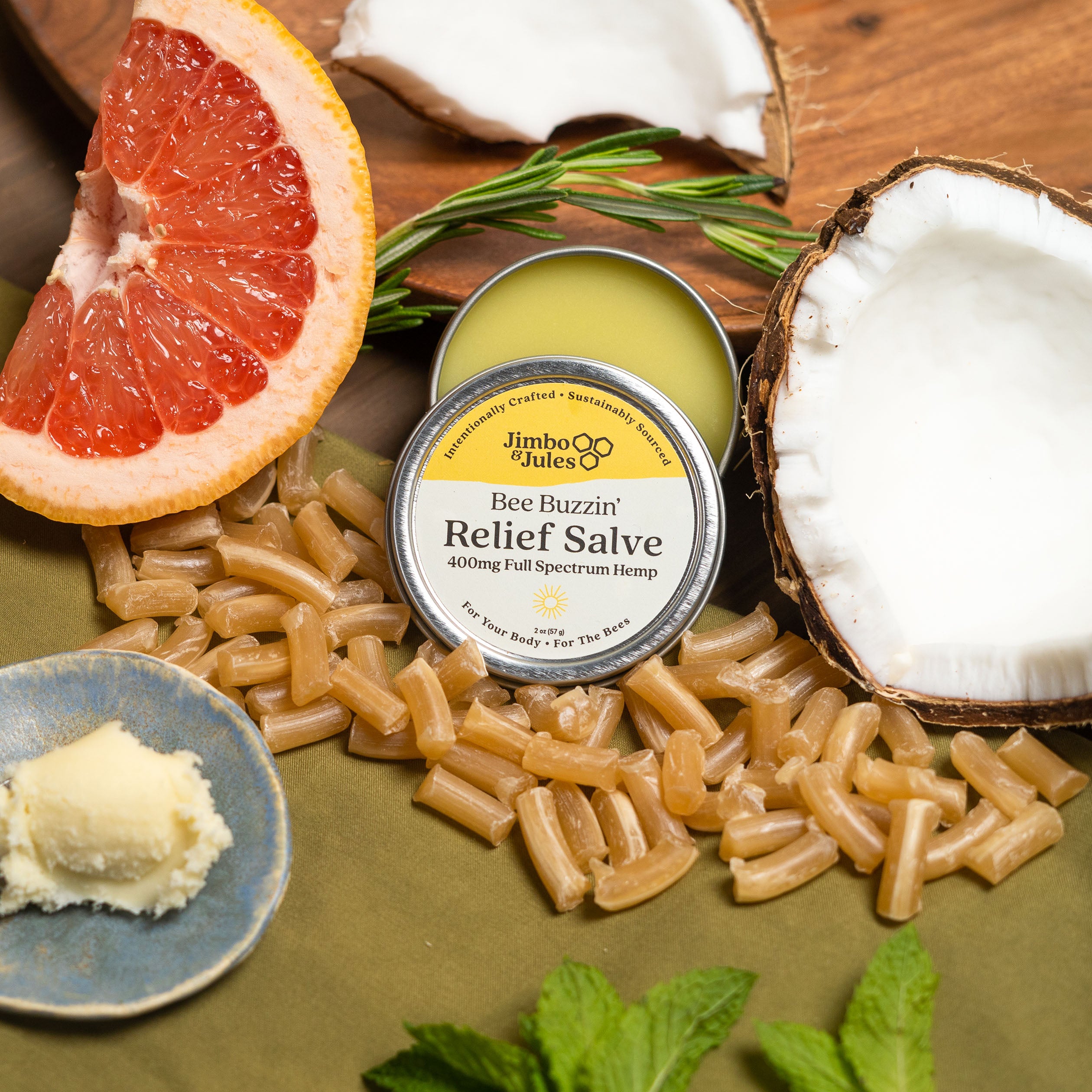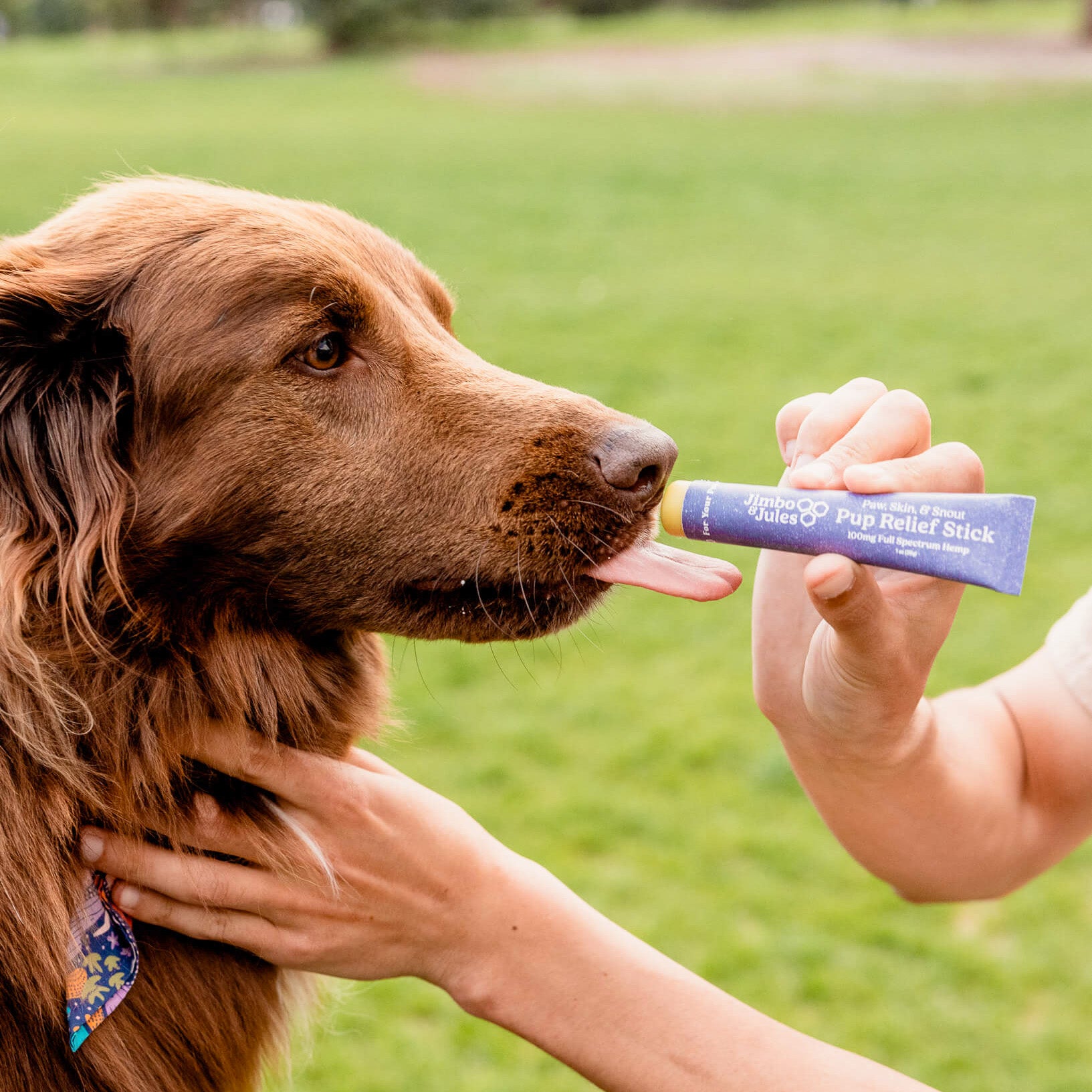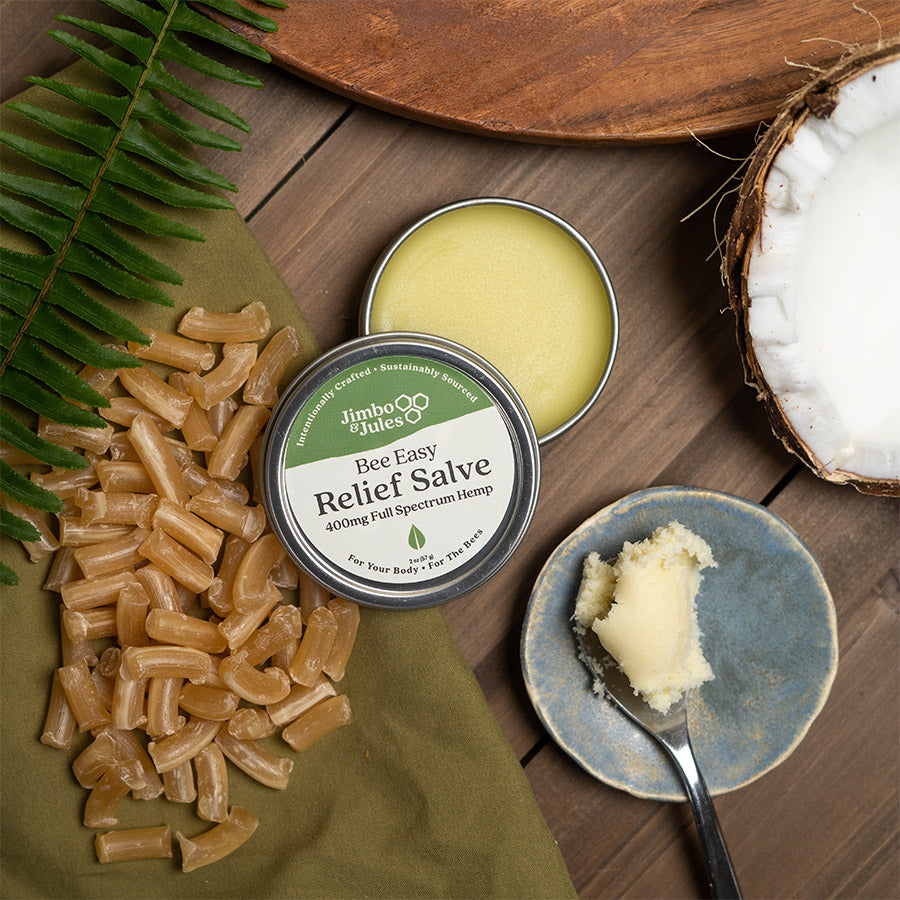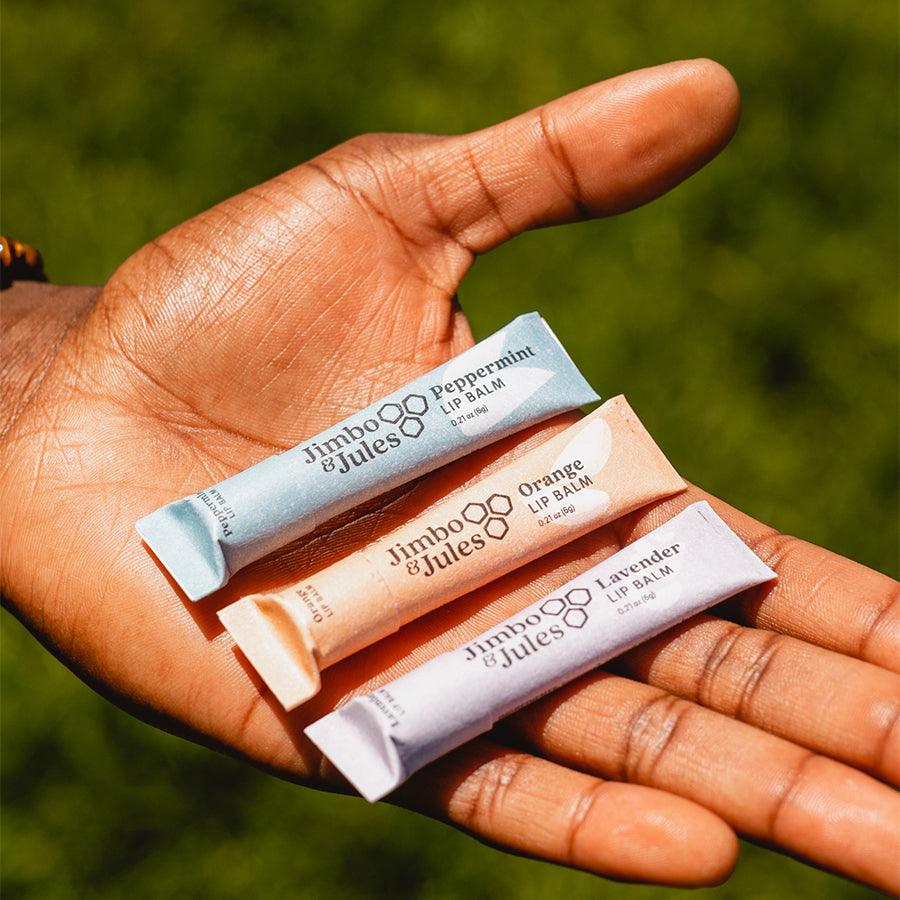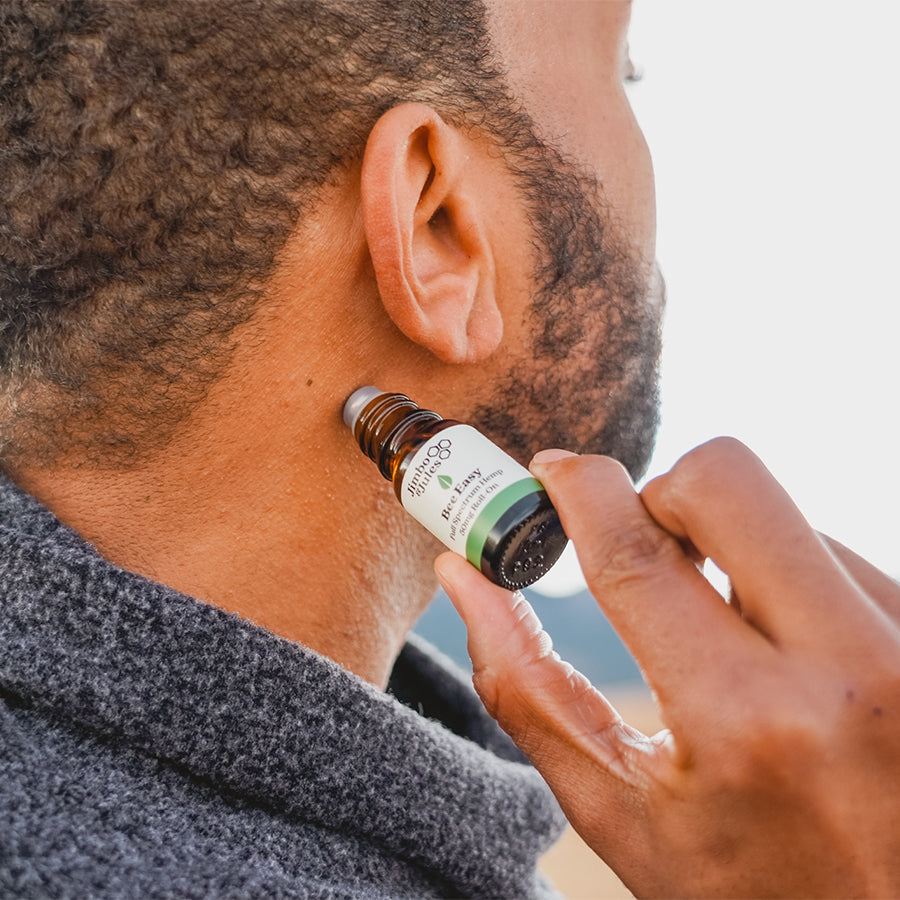It’s Pollinator Month, and so it only seems right to put our beloved bees in the spotlight. And boy do they deserve the buzz! Did you know that 1 in 3 bites of food you eat depends on bees?
They may be small, and even scary to some, but they have a huge impact on human health and the survival of our planet. In this post, we’ll discuss why bees are so important and how we can celebrate these hard-working creatures together.
What are Pollinators And Why are They So Important?
Put simply, a pollinator is anything that carries pollen from the male part of the flower (the stamen) to the female part of another flower (the stigma).
Insects such as bees, butterflies, flies, wasps, and beetles are the major pollinators, though some larger creatures, like birds and bats, also do their share of pollinating. Wind can even be considered a pollinator, as it transports pollen to a wide range of trees, grasses, and wildflowers.
So, why are they important?
Well, thanks to pollinators, the fertilized flower can yield fruit and seeds, and continue to breed and bloom. This in turn provides food and habitat for other creatures and contributes to biodiversity.
Essentially, the health of our ecosystem depends on the health of our plants, which depend on our pollinators.
The Buzz About Bees
Bees are the poster child of pollinators, and rightly so. They’re responsible for pollinating about one-sixth of the flowering plant species worldwide.
Now, when you think of bees your mind might go straight to hives of honeybees, but there are actually over 20,000 known species of bees globally. In fact, the honeybee isn’t even one of the 4000 bees native to the USA; it was originally imported from Europe in the 17th Century.
Different species have unique features which make them good pollinators. For example, honeybees and bumble bees have tiny blended hairs that make a ‘pollen basket’, and many wild bees have leg hairs that are long and sticky for pollen to attach to.
They all are well worth celebrating, and here are 10 reasons why.

10 Reasons Why We Need Bees
-
They Provide Food for Humans…
We’d be pretty stumped for lunch if it wasn’t for bees. Apples, almonds, blackberries, pumpkins, blueberries, cucumbers, cherries, and, of course, honey, are some of the foods that we’d be missing if we didn’t have the help of bees. Just the thought of it makes us hungry.
-
…And Other Animals!
It’s not just humans that would go hungry. Many mammals and birds rely on berries, seeds, fruits, and nuts from plants pollinated by bees. They play a vital role in the food chain.
-
They Provide Habitats for Other Species
Beyond feeding other species, plants provide somewhere for them to live too. The plants that bees pollinate create natural habitats where insects, mammals, and birds can thrive.
-
They Benefit Biodiversity
More generally, by pollinating many different types of plants worldwide, bees are beneficial for biodiversity (i.e., the many different species of plants and creatures that make up our natural world).
-
They Contribute to the Economy
While the busy bees in question may not be heading into work with a briefcase, pollinators do have an astonishing impact on the economy. How much of an impact, you may ask? There have been several different attempts to quantify it, and in this Forbes article, it’s estimated between $235 billion and $577 billion worth of annual global food production relies on their contribution.
-
They Provide Jobs
While we love bees roaming wild and free, it’s also important to acknowledge that bee farms are a major source of employment for us humans. According to the Department of Agriculture, there are 212,000 beekeepers in the US. And of course, in return, those beekeepers do an excellent job of keeping bee populations healthy and strong!
-
They Clothe Us
You might not associate bees with the clothes you wear, but you should! It comes back down to the crops they pollinate. For those who are trying to shop more sustainably, every choice is important. Synthetic fabrics like Polyester are plastic-based, but natural fabrics like cotton come from plants which, you guessed it, depend on bees.
-
They Care for Our Skin
Beeswax is often used in cosmetic products as it creates a silky-smooth texture and retains the skin’s moisture. You’ll find this ingredient in our Lip Balm and Relief Salve, and you’ll be glad to know our bees are far away from any harmful pesticides.
-
They Might Be Pollen Specialists
Native bees are clever little creatures. 20-45% are ‘pollen specialists’, meaning they only use pollen from one species of plant. Like scientists or professors, they’re experts in their field. If the native bee wasn’t there, that plant couldn’t reproduce.
-
They Tell Us About the Health of the Planet
Just like a canary in the coal mines, bees are whistle-blowers for the health of our planet. Both scientists and beekeepers alike keep a close eye on bee populations as indicators of changes in the environment.
Your Conscious Garden with Jimbo & Jules
As you can see, bees stay busy keeping so many important things in balance. Sadly, their work often goes unappreciated.
Both honeybee and native bee populations are rapidly declining due to factors like the use of pesticides, loss of habitat, and climate change. They’re endangered, and consequently, our food supply and ecosystems are at risk.
In recent years this has come to public attention, and at Jimbo & Jules, we’re passionate about being part of the change. That’s why created the Conscious Garden Project: a 3-part initiative to protect pollinators and inspire others to do the same:
- We donate 1% of our sales to People and Pollinators Action Network.
- Through community workshops and informative blogs, we educate and empower others to use the most sustainable gardening practices.
- And finally, we ship every order with a free packet of wildflower seeds native to your region.
Plant your seeds to create your own conscious garden and keep the bees buzzing. We’d love you to tag us in best bee pictures on Instagram, and don’t forget to use the hashtag #pollinatorweek too!

